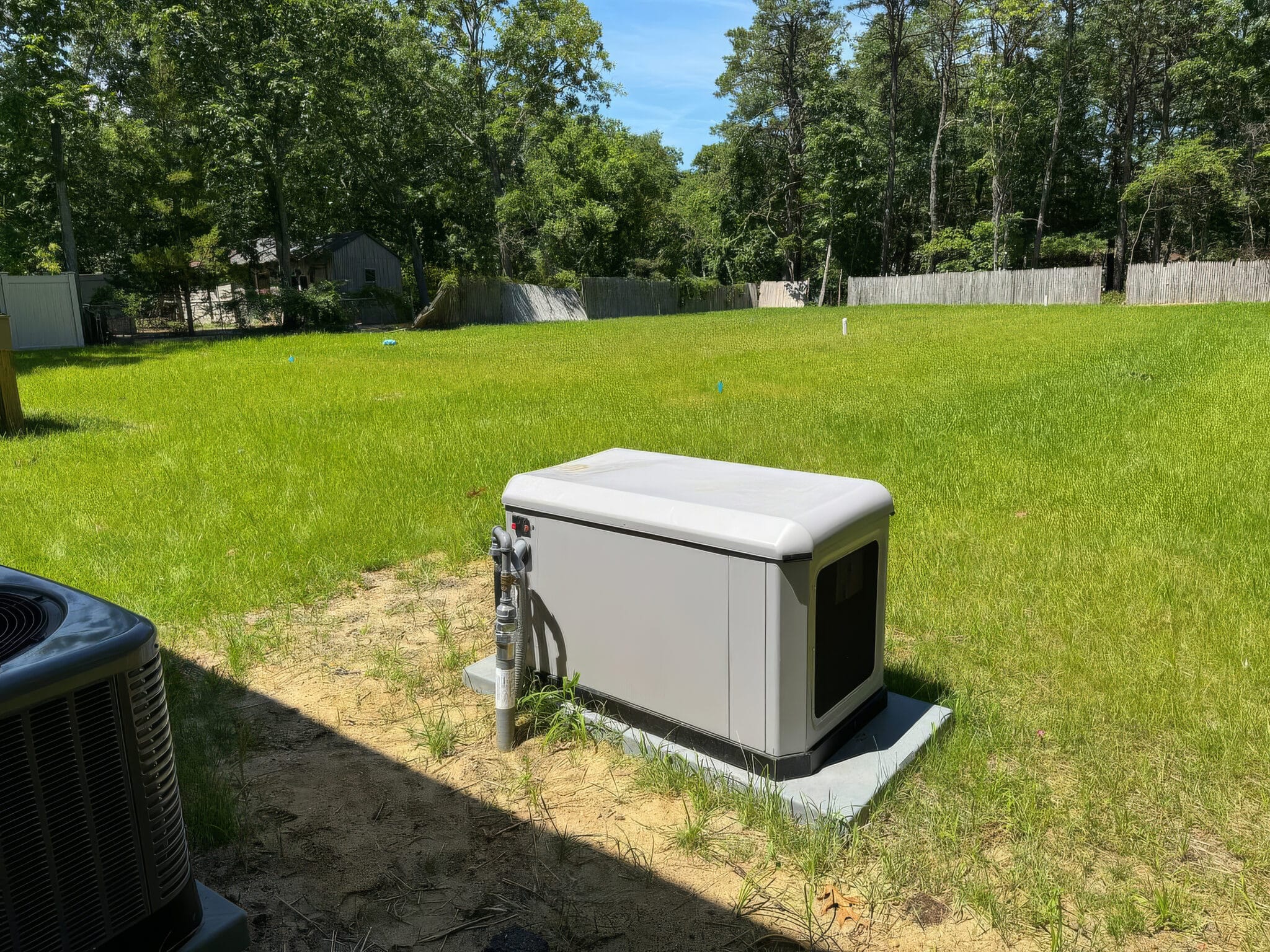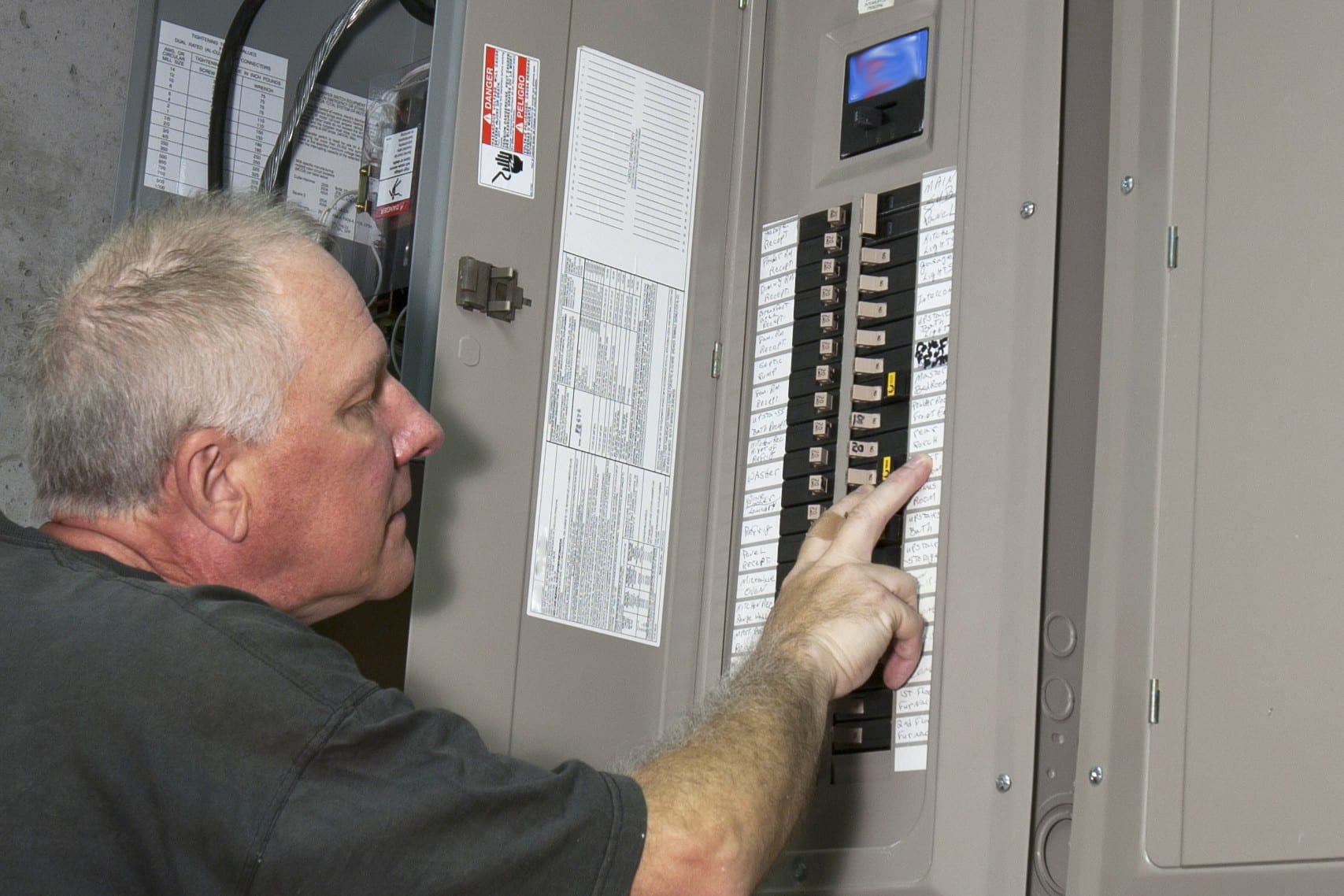
The Ultimate Guide to Choosing and Installing CO Detectors
CO detectors are vital safety devices for every home in Colleyville and Grapevine, TX. These detectors identify carbon monoxide, an invisible and odorless gas that poses serious health risks. With many homes using gas appliances or fireplaces, CO exposure becomes a real concern, especially during colder months. Choosing and installing the right CO detectors ensures your family’s safety year-round.
Understanding the danger is the first step in preventing CO poisoning. Carbon monoxide builds up when appliances malfunction or ventilation is poor, often without warning. Common symptoms include headaches, dizziness, and fatigue, which many mistake for other issues. A properly installed CO detector can alert you before the gas reaches dangerous levels.
Not all homes require the same type of CO detector setup. Small homes may only need one unit, while larger ones need multiple detectors across different levels. Placement near bedrooms and fuel-burning appliances is essential to provide early warning and quick response.
Buffalo Electric offers expert guidance and installation services to ensure correct placement and operation of your CO detectors. By trusting professionals, Colleyville and Grapevine homeowners can rest easy knowing their families are protected. Choosing the right CO detectors could save lives.
Understanding the Dangers of Carbon Monoxide
Carbon monoxide is a silent threat that often goes unnoticed until it is too late. Produced by burning fuel in appliances like furnaces or stoves, CO builds up indoors if ventilation fails. Because the gas has no smell or color, people can inhale dangerous levels without realizing it. That is why installing carbon monoxide detectors in Colleyville and Grapevine homes is so important.
Even low levels of carbon monoxide can cause symptoms like nausea, confusion, and shortness of breath. Higher concentrations can lead to unconsciousness or death in just minutes. Families with children or elderly members are especially vulnerable to these health risks. A functioning carbon monoxide detector is the best line of defense against accidental exposure.
Winter increases the danger since heaters and fireplaces run more often. Closed windows and less airflow also contribute to carbon monoxide buildup in the home. That makes seasonal maintenance and carbon monoxide detector checks essential before cold weather arrives. Homeowners in Grapevine and Colleyville should take action early to protect their loved ones.
Choosing reliable CO detectors and installing them properly could prevent tragedy. Buffalo Electric helps homeowners understand these risks and take smart steps toward safety. Trust professionals to handle this critical part of home protection.

Different Types of CO Detectors Explained
Choosing from various CO detectors ensures the best protection for homes in Colleyville and Grapevine. Each type offers unique advantages, depending on your home’s structure and personal preferences. Understanding your options helps you make informed decisions when safety is on the line. Here are the main types of CO detectors:
Battery-Powered Detectors
These are easy to install and ideal for quick setups. They operate during power outages, offering consistent protection. You can place them anywhere without relying on wiring. Their flexibility makes them perfect for renters or older homes.
Plug-In Detectors
These models connect directly to electrical outlets. Most include battery backups for extra reliability. They are simple to install and relocate as needed. Ideal for homes with ample outlet access.
Hardwired Detectors
These connect to your home’s power supply and often interconnect with other alarms. They are best suited for new construction or major renovations. Interlinked systems ensure alarms sound simultaneously throughout the house. They require professional installation for proper setup.
Smart CO Detectors
These connect to Wi-Fi and send alerts to smartphones. Great for remote monitoring and tech-friendly homeowners. Features include self-testing and battery notifications. Advanced protection with real-time access.
Buffalo Electric helps select and install the best CO detectors for your needs, ensuring safety from every angle.
How to Choose CO Detectors for Home Size
Selecting CO detectors based on your home’s size ensures complete protection. Small homes in Colleyville or Grapevine may need fewer units. Larger homes require detectors on every floor and near all sleeping areas. Matching the system to the home’s layout guarantees maximum safety.
In one-bedroom homes, a single detector placed near sleeping areas may suffice. Always install at least one detector on every level, including the basement. For two-story homes, add units in hallways and near attached garages. This setup ensures no area goes unmonitored.
Larger homes benefit from interconnected CO detectors. These systems sound all alarms if one detects gas, speeding up emergency response. Placing them in bedrooms, kitchens, and near fuel-burning appliances is key. Do not forget areas like utility rooms or workshops with heating units.
Buffalo Electric helps homeowners evaluate their layout and determine the best CO detector configuration. Our professionals ensure correct placement and code compliance. Whether upgrading or installing new units, proper planning makes a big difference. Trust Buffalo Electric to protect every corner of your home.
Why Professional Installation of CO Detectors Matters
Professional installation of CO detectors ensures reliable performance and peace of mind. Experts know the best places to install detectors for full coverage. Homes in Colleyville and Grapevine benefit from proper placement based on layout and appliance location. A certified Electrician makes sure every detector works correctly from day one.
Improperly placed detectors may miss CO leaks or delay alarms. Professionals install units away from vents or fans that can interfere with readings. They also ensure units are installed at correct heights for accurate detection. This detailed setup helps avoid false alarms and improves overall safety.
Licensed electricians also understand building codes and safety regulations. In some cases, city ordinances require specific types or locations for CO detectors. Professional installation guarantees compliance with all local standards. That means fewer headaches and a safer living space.
Buffalo Electric offers installation services tailored to your home’s unique design. We handle everything from wiring to mounting, testing each unit for accuracy. Our team takes pride in delivering dependable protection through expert craftsmanship. Let us handle the technical details so you can focus on your family’s safety.
Ideal Placement of CO Detectors in Every Home
Correct placement of CO detectors is just as important as choosing the right model. Detectors must be positioned where carbon monoxide is most likely to accumulate. In homes throughout Colleyville and Grapevine, that often includes kitchens, garages, and bedrooms. Proper placement maximizes response time and minimizes risk.
Install detectors outside each sleeping area to protect your family while they rest. Place them on every level of the home, including basements. Avoid installing units too close to windows, vents, or ceiling fans. These locations may interfere with detection by dispersing the gas.
CO rises with warm air, so wall placement should be at breathing height when possible. Ceiling placement should follow manufacturer instructions for accuracy. Keep detectors at least 15 feet away from fuel-burning appliances to reduce false alarms. Consider professional advice for optimal coverage in complex floor plans.
Buffalo Electric evaluates each room to ensure ideal CO detector placement. We tailor installation plans to suit different home layouts and lifestyles. Proper positioning ensures alarms go off exactly when they should. With expert help, your home remains safe and secure.
Maintaining Your CO Detectors Year-Round
Regular maintenance of CO detectors keeps them functioning when you need them most. Just like any safety device, they require attention and care. Homeowners in Colleyville and Grapevine should follow a schedule for testing and upkeep. These simple steps ensure long-term protection for your entire household.
Test each CO detector once a month using the built-in test button. This confirms the alarm still works and detects power issues. Replace batteries at least once a year or when the low-battery signal sounds. Keeping batteries fresh prevents unexpected outages and ensures 24/7 coverage.
Dust and dirt can interfere with the sensor’s ability to detect carbon monoxide. Clean detectors regularly using a soft brush or vacuum attachment. Avoid using cleaning sprays or wet cloths, which can damage sensitive components. Keep the area around detectors free of obstructions to allow proper airflow.
Buffalo Electric offers maintenance support for homes of every size. We check for sensor wear, battery life, and software updates in smart detectors. Our experts help you stay ahead of potential failures before they become problems. With routine care, your CO detectors stay reliable all year.
Smart Features Available in Modern CO Detectors
Today’s CO detectors come packed with smart features that enhance safety and convenience. Homeowners in Colleyville and Grapevine benefit from these modern upgrades. Smart detectors connect to Wi-Fi, allowing remote monitoring through mobile apps. You will receive alerts instantly, even when away from home.
Some models offer voice alerts to identify the type of emergency. This helps families respond quickly without confusion during stressful situations. Other smart features include self-testing, auto-silencing, and battery status notifications. These improvements reduce false alarms and boost everyday reliability.
Many smart CO detectors also integrate with home automation systems. They can connect with smart thermostats, lighting, and security devices. This integration creates a unified safety network throughout your home. If one detector senses danger, your entire system reacts to keep you safe.
Buffalo Electric recommends smart CO detectors for tech-savvy households and busy families. We install and configure these systems to work seamlessly with your devices. Our team explains how each feature works for peace of mind. Let us modernize your home’s safety with the latest CO detector technology.
Common Mistakes When Installing CO Detectors
Installing CO detectors improperly can significantly reduce their effectiveness. In Colleyville and Grapevine, many homeowners make similar errors. Avoiding these common mistakes ensures your CO detectors work properly when you need them most. Here are the top issues to watch for:
Incorrect Placement
Installing detectors near windows, fans, or air vents can disrupt airflow. This prevents accurate detection and delays alarms. Always follow manufacturer placement guidelines for optimal coverage. Placement plays a major role in how well detectors function.
Mounting at the Wrong Height
CO detectors should be mounted at head level or per product recommendations. Placing them too high or low may reduce effectiveness. Ceiling-mounted models must follow specific instructions. Avoid guessing, use guidance for precise placement.
Neglecting Maintenance
Forgetting to test detectors monthly or change batteries yearly is dangerous. Failing to clean units can also affect performance. Dust buildup or dead batteries leave homes unprotected. Regular maintenance keeps systems reliable year-round.
Not Using Professionals
Many homeowners attempt DIY installations without proper tools or knowledge. This leads to code violations or ineffective setups. Buffalo Electric ensures correct installation and long-term reliability. Our team helps avoid these costly mistakes.
Understanding Local CO Detector Requirements in Texas
Texas has specific regulations for installing CO detectors in residential buildings. Homes with gas appliances or attached garages must follow these rules. In Colleyville and Grapevine, adhering to these standards is not just smart, it is required. Local codes ensure every household maintains a minimum level of safety.
State law mandates CO detectors near sleeping areas in homes with fuel-burning devices. That includes water heaters, fireplaces, and gas stoves. New constructions must include hardwired or interconnected detectors with battery backups. These standards help prevent carbon monoxide poisoning in high-risk areas.
City inspectors may check for proper installation during home sales or renovations. If detectors are missing or outdated, homeowners must upgrade before approval. Rental properties also require working CO detectors as part of landlord responsibilities. Keeping up with local laws protects both residents and property values.
Buffalo Electric stays informed about building code changes and regional safety updates. We install CO detectors that meet or exceed every requirement. Our team ensures your home in Grapevine or Colleyville remains compliant and secure. Trust professionals who understand the rules and care about your safety.
When to Replace CO Detectors in Your Home
Replacing CO detectors at the right time ensures your home stays safe from invisible threats. Devices in Colleyville and Grapevine homes need regular updates. Sensors wear out and lose effectiveness over time. Below are key signs that it is time to replace your CO detectors:
Reached Expiration Date
Most detectors last five to seven years depending on the model. Check the manufacture date printed on the back. If the unit has expired, replace it immediately. Old detectors may not detect CO accurately.
Frequent False Alarms
Unexplained beeping or alerts could signal a failing sensor. Frequent false alarms reduce trust and delay real responses. Replacing the unit resolves this issue. Reliable alarms save lives during emergencies.
Failure to Pass Tests
If the detector does not sound during a test, it is not working properly. Testing should happen monthly using the test button. Inconsistent results mean it is time to upgrade. Functioning tests are critical to home safety.
End-of-Life Warnings
Some detectors chirp when they reach the end of their service life. Others may display warning lights or error codes. Do not ignore these alerts. Buffalo Electric can help with proper replacement and setup.

Partnering with Experts for CO Detector Safety
Protecting your family starts with choosing the right CO detectors and having them professionally installed. In Colleyville and Grapevine, homeowners trust Buffalo Electric to deliver peace of mind. Our team ensures your home is equipped with dependable, code-compliant CO detectors. Safety is never left to chance when you work with professionals.
We begin by assessing your home’s layout, identifying key risk areas for carbon monoxide exposure. Then, we recommend detectors that best suit your space and lifestyle. Whether it is a smart system or a basic setup, you get personalized solutions. Every installation is handled with precision and care.
Buffalo Electric does not stop at installation. We offer ongoing support, maintenance, and timely replacements. Our goal is to keep your CO detectors working reliably year after year. When questions arise, our experts are only a call away.
Choosing Buffalo Electric means choosing long-term safety and quality service. With our guidance, your home stays protected from carbon monoxide threats. Do not leave your family’s well-being up to guesswork. Trust the local professionals who understand what homes in Colleyville and Grapevine really need.
Frequently Asked Questions About CO Detectors
Where should I install CO detectors in my home?
Install CO detectors near sleeping areas, on every level of your home, and close to fuel-burning appliances. Avoid placing them near vents, windows, or ceiling fans.
How often should I test and replace my CO detectors?
Test CO detectors once a month and replace batteries yearly. Replace the entire unit every five to seven years or as recommended by the manufacturer.
Do I need a CO detector if I do not use gas in my home?
Yes, if you have an attached garage, fireplace, or any appliance that burns fuel, CO detectors are necessary to detect potential leaks.
What is the difference between smoke detectors and CO detectors?
Smoke Detectors detect fire and smoke particles, while CO detectors sense the presence of carbon monoxide gas. Both serve distinct but vital safety functions.
Can I install CO detectors myself, or should I hire a professional?
While some models allow DIY installation, professional setup ensures proper placement, wiring, and compliance with local safety codes, especially in homes with complex layouts.








